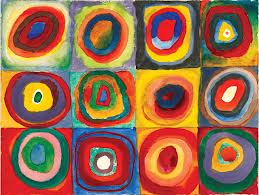Part I: Bibliographic information
Type: Magazine/comic
Title: Mad magazine
Dates of publication:
Frequency: Monthly
Publisher: DC Comics, a divison of Warner Brothers Entertainment
Genre/subgenre: Graphic/humor
Interest Age: 13+
Reading Level: Upper Grades (UG 9-12)
Pages: Varies
Part I: Reader’s Annotation, Plot Summary, Critical Evaluation
Reader’s Annotation -- Since 1952, Mad magazine has set the gold standard for political relevance and edgy humor that appeal across generations to young readers.
Plot Summary -- I’d like to say this is Rolling Stone for the less literate. Mad has its roots in the comic world rather than in journalism. But it’s not accurate to say that Mad is not journalistic albeit with a strong sense of satire and a more than occasional indulgence in poor taste. A typical issue features a powerful cover image the ties into the hot news story of the month. The current issue features President Obama in a spy coat playing on the privacy story breaking in Washington, D.C. this month. But this sense of relevance goes beyond the cover -- the strips are often about some political event or scandal. And the writers are not leaving out the ordinary American who gets made fun of regularly -- and not to forget corporate America either! They spoof all sorts of ads emphasizing the ludicrous and ridiculous wherever possible.
Critical Evaluation -- This is not humor with good taste. Mad sometimes is offensive and even encourages socially irresponsible behavior at times. But there is an effort to keep the content edgy and engaging. It’s not 100% thoughtless -- only about 50%! But that’s the draw of this to young readers who might not otherwise read very much at all. And, the content does attempt to balance its ruthless funmaking across party lines. There simply is no equivalent and, for these reasons and more, it’s America’s top selling humor magazine.
Part III: Author Info
Mad magazine publisher Bill Gaines founded and headed Mad magazine for forty years before he passed away in 1992. He was challenged by the U.S. Congress on grounds of promoting juvenile delinquency but defended himself eloquently and became an inspiration for the free speech movement (William, n.d.). Interestingly, he was also criticized by a prominent communist psychologist for promoting crass and capitalistic ideas to youth, according to his Wikipedia page.
In Completely Mad: A History of the Comic Book and Magazine by Maria Reidelbach, it indicates that Gaines married Nancy Siegel in 1955 (William, n.d.). This source reportedly says that had three children, Cathy (1958), Wendy (1959), and Christopher (1961). They divorced in 1971. In 1987 he married Anne Griffiths -- they remained married until his death in 1992 (William, n.d.).
Part IV: Curriculum Ties, Diversity, Booktalk Ideas, Challenge Issues
Curriculum Ties, if any -- It’s really outside of the classroom experience but, on occasion, there might be a bit of humor to introduce into a current affairs conversation.
Diversity of Cultures -- Fairly diverse in it use of characters though sometimes inclined to indulge in stereotype of women, minorities, gays and the rest of America, too!
Booktalking Ideas -- Humor offers an alternative to straight-forward journalism both in magazine and now on television. What is the risk or downside to getting one’s news from a comedy channel or humor magazine? Why are they so popular?
Challenge Issues -- Some of the content may seem offensive to certain groups. Some encourages anti-social behaviors like partying or pranking. This might certainly be challenge within a school library but would be appropriate for a YA area within a public library.
Part V: Reasons chosen
As a kid, I was given a subscription to Mad. I read it religiously. While the humor is over the top and adult in nature at times, it does engage a reader who might not otherwise be reading much. The addition of political content keeps it from being completely mindless.
Part VI: Citations
William Gaines. (n.d.). Wikipedia [webpage]. Retrieved from http://en.wikipedia.org/wiki/William_Gaines


No comments:
Post a Comment